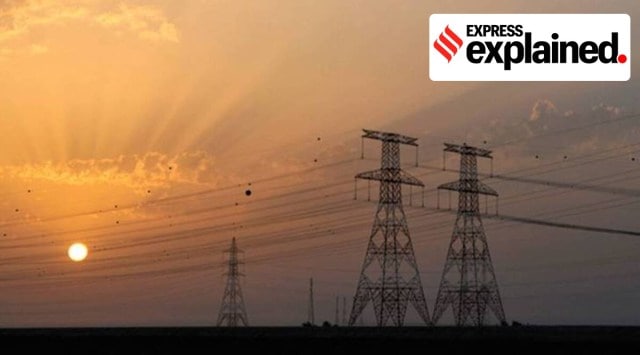Why trade unions in Kerala are opposing Centre’s power sector revamp scheme
Last month, the CPI(M) politburo demanded that the Centre scrap the project, alleging it would lead to privatisation of the electricity sector and increase financial burden on the poor and the farmers.
 The project has two components: revamping of the electricity distribution network, and smart meter implementation. (Reuters photo for representation)
The project has two components: revamping of the electricity distribution network, and smart meter implementation. (Reuters photo for representation) The Kerala government is facing trouble over the Centre’s Revamped Distribution Sector Scheme (RDSS), which envisages pre-paid smart electricity meters in households and revamping the power distribution network in the country.
Last month, the CPI(M) politburo demanded that the Centre scrap the project, alleging it would lead to the privatisation of the electricity sector and increase the financial burden on the poor and the farmers. Also, trade unions in Kerala affiliated to both the CPI(M) and the Congress, which have a significant say in the Kerala State Electricity Board (KSEB), are opposing the scheme.
The RDSS project
The Centre has launched the RDSS with an outlay of Rs 3,03,758 crore. The project has an estimated gross budgetary support of Rs 97,631 crore from the Union government for the duration of five years, from FY 2021-22 to FY 2025-26.
The project has two components: revamping of the distribution network, and smart meter implementation. Power lines and distribution systems will be modernised, while financial assistance will be given to distribution companies (in Kerala, it is KSEB) for the upgradation of the distribution infrastructure and for the installation of prepaid smart consumer meters.
The smart meters are meant to facilitate the reduction of distribution losses and enable automatic measuring of energy consumption. The installation of the pre-paid meters is to be done through the TOTEX (total expenditure, including capital expenditure and operational expenditure) model, with public-private participation.
The bone of contention
Kerala has submitted to the Centre a project of Rs 3,800 crore for distribution revamp and Rs 8,200 crore for smart meters.
Early this year, the KSEB invited tenders for the first phase of the revamp and for 37 lakh prepaid smart meters. A single agency was to be contracted for supplying, maintaining and operating the metering infrastructure.
However, no final decision has been taken, amid protests from the trade unions.
Trade unions are opposing the TOTEX model, in which a private firm installs and maintains smart meters. The private agency will recover the cost incurred in instalments.
The unions fear that the smart meter system will thus pave the way for the privatisation of power distribution in the state.
KSEB, meanwhile, has argued that it will get financial assistance from the Centre only if the project is implemented in TOTEX mode.
Alternative proposed
Those opposing the TOTEX mode claim that the state should manufacture smart meters using the technology developed by the central government institution Centre for Development of Advanced Computing (C-DAC), which is willing to share the know-how. This will also help bring down the cost of the smart meters significantly, from Rs 9,500 per unit under the TOTEX mode.
KSEB, however, says this is not feasible.
- 01
- 02
- 03
- 04
- 05






































